The Smart Circle
The trend regarding smart technologies which are used for economic, durable and social return of markets has been put in motion.
In order to fully facilitate this, we developed the Smart Circle. A new initiative aimed at all subjects and theme’s regarding smart, technological solutions such as Mobility, Health, Data, Technology, City, Lighting, Renewables.
The Smart Circle’s mission is to bring together a diversity of international stakeholders regarding smart technologies.
Projects
-
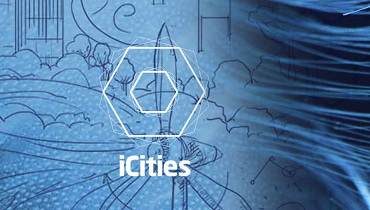 iCitiesiCities
iCitiesiCitiesBrasil
The iCities is designed conceptually based on studies related to the recent issue of Smart Cities in Brasil.
-
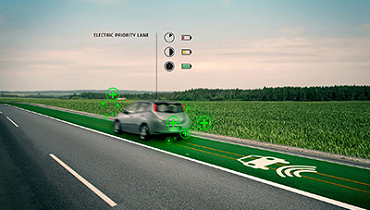 Smart HighwaySmart Highway
Smart HighwaySmart HighwayThe Netherlands
Smart Highway is an innovative concept for smart roads of tomorrow. A programme of innovation that links a different way of looking at things with innovative ideas that apply the opportunities offered by new technologies in smart ways.
-
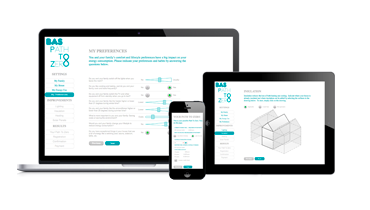 Path To ZeroPath To Zero
Path To ZeroPath To ZeroThe Netherlands
BAS Holding is a technology company focused on developing sustainable energy management solutions for the consumer energy sector. We provide ‘sustainability’ as a service for homes and businesses using our energy efficiency platform the Path To Zero.
-
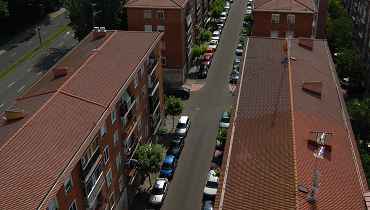 R2CITIESR2CITIES
R2CITIESR2CITIESSpain
This project aims to develop and demonstrate an open and easily replicable strategy for designing, constructing, and managing large scale residential district renovation projects to achieve nearly zero energy cities.
-
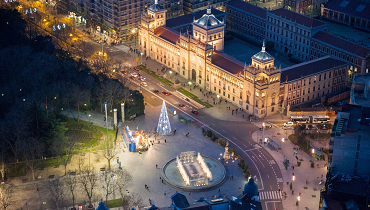 REMOURBANREMOURBAN
REMOURBANREMOURBANSpain
REMOURBAN is a large scale demonstration project, whose purpose is to accelerate the urban transformation towards the smart city concept taking into account all aspects of sustainability.
-
 Smart Street LightingSmart Street Lighting
Smart Street LightingSmart Street LightingWavre (Belgium)
This technology meets the dynamic management objectives by giving “the light where and when needed and at the right level of illumination” and allows the exchange of information through its intelligent and communicating modules.
-
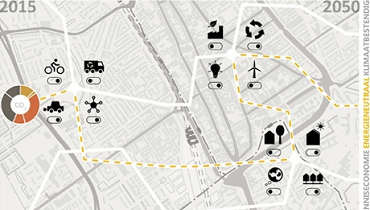 Delft Smart CityDelft Smart City
Delft Smart CityDelft Smart CityThe Netherlands
We regard the process of becoming a Smart City as a strategic process that is all about solving long term problems, not only about smart solutions.
-
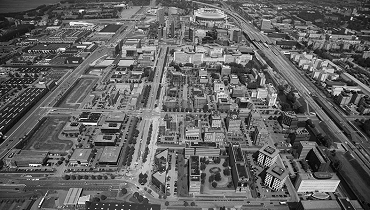
-
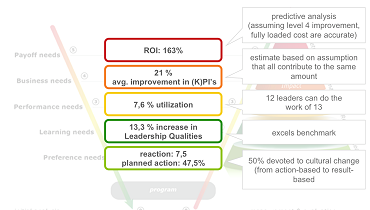 Multiplying Business ImpactMultiplying Business Impact
Multiplying Business ImpactMultiplying Business ImpactThe Netherlands
Recent research on leadership transitions found that nearly 40% of internal job moves made by people identified by their companies as “high potentials,” end in failure.
-
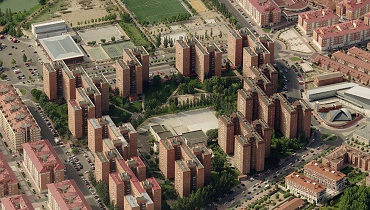 CITyFiEDCITyFiED
CITyFiEDCITyFiEDSpain
The CITyFiED project aims to deliver a replicable, systemic and integrated strategy to transform European cities into Smart Cities, focusing on reducing the energy demand and GHG emissions and increasing the use of renewable energy sources.
-

-
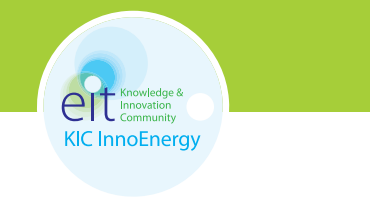 KIC InnoEnergy SEKIC InnoEnergy SE
KIC InnoEnergy SEKIC InnoEnergy SEEurope
KIC InnoEnergy is a European company dedicated to promoting innovation, entrepreneurship and education in the sustainable energy field by bringing together academics, business and research institutes.
-
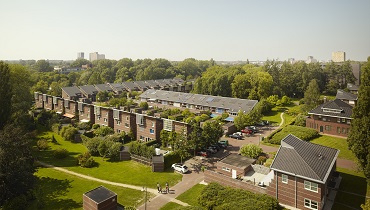 Power Matching CityPower Matching City
Power Matching CityPower Matching CityGroningen, The Netherlands
PowerMatching City is a smart grid pilot project and living laboratory that is evolving into a Smart Green City project.
-
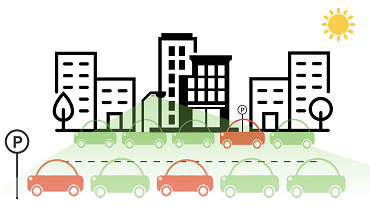 Cleverciti SystemsCleverciti Systems
Cleverciti SystemsCleverciti SystemsSustainable Parking Solution for Smart Cities
The search for a parking space is one of the largest global time-wasters in the mobile age. The Cleverciti Systems aims to make parking space management intelligent and efficient and simultaneously reduce CO2 and NO2 emissions, thereby increasing the quality of life of motorists and citizens.
-
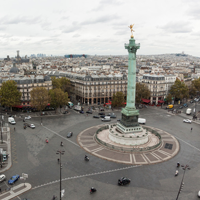 The Place de la NationThe Place de la Nation
The Place de la NationThe Place de la NationThe Remodelling of the Place de la Nation
OpenDataSoft is excited to be involved in an ambitious Smart City experiment currently taking place in the City of Paris, led by Cisco and in partnership with Placemeter. -
 STAR Open DataSTAR Open Data
STAR Open DataSTAR Open DataSTAR Open Data In the Western French City of Rennes, the STAR public transportation network operated by Keolis Rennes is a pioneer in open transportation data
-
 Brussels mobility issuesBrussels mobility issues
Brussels mobility issuesBrussels mobility issuesIBM, The Netherlands
IBM experts are helping to unravel the traffic problems that have afflicted Brussels, with the company awarding the Brussels-Capital Region a Smarter City Grant valued at half a million US dollars. The city will use the funds to investigate ways of improving mobility in Brussels.
-
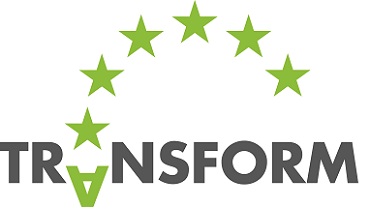 Decision Support ToolDecision Support Tool
Decision Support ToolDecision Support ToolTransform
TRANSFORM provides insight into smart city processes and methodologies for cities how to become a low carbon city by executable projects and transparent decision making, based upon stakeholder co-creation.
-
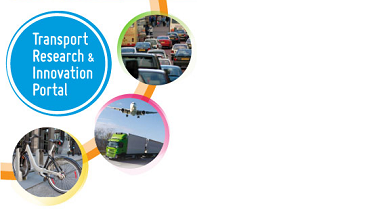 TRIPTRIP
TRIPTRIPTransport Research and Innovation Portal
The main objective of this project is to continue and expand the one single portal for all transport research related information conducted at European and nationals levels.
-
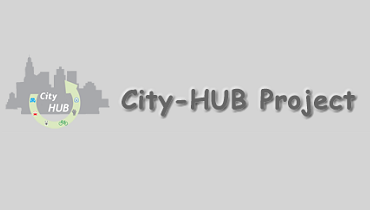 City-HubCity-Hub
City-HubCity-HubCity-Hub
City-HUB aims to make existing urban interchanges accessible to all users. The approach is integrated, covering the different aspects of an urban interchange in order to increase the use of public transport, improve the efficiency and propose a new business model.
-
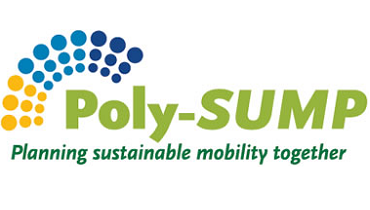 POLY-SUMPPOLY-SUMP
POLY-SUMPPOLY-SUMPPOLY-SUMP
The Poly SUMP project brings together 6 different regions and supports these regions with the introduction of sustainable urban transport planning. Panteia NEA is WP2 leader (establishing the institutional and mobility setting within regions) and supports the region of Parkstad Limburg (NL) with the implementation of a SUMP.
-
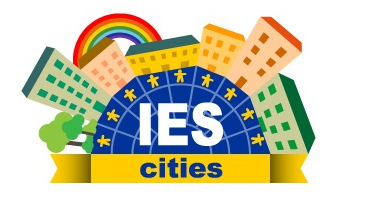 IES CitiesIES Cities
IES CitiesIES CitiesBristol, Zaragoza, Rovereto and Majadahonda
IES Cities: A novel and practical way of building the digital identity of a city
-
 Smart IslandsSmart Islands
Smart IslandsSmart IslandsMarousi, Greece
SMART-ISLANDS integrates multiple services for tourism, transportation, environment, civil protection & other, under the Smart-Islands Platform which constitutes of a 3D Tablet and PC interface. By the end of the project, 14 Mediterranean islands from Greece, Italy, Spain, Cyprus and Malta will benefit from the SMART-ISLANDS platform enhancing tourism development, a crucial sector of development due to the economic crisis.
-
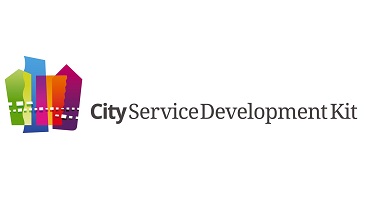 City SDKCity SDK
City SDKCity SDKCity Service Development Kit
8 European Cities have been working together to release opendata in a coordinated way to energise their local developer communities and provide a European wide market for new applications and services.
CitySDK (“City Service Development Kit”) is creating a toolkit for the development of digital services within cities. -
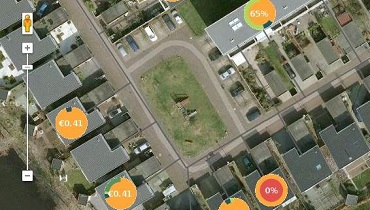 Smart Energy CitySmart Energy City
Smart Energy CitySmart Energy CityGroningen, the Netherlands
The project Power Matching City is putting the “Smart Energy Citizen” in control of fine tuning his energy demand towards the fluctuating supply of energy from sustainable sources Simultaneously user centered cooperative projects like Grunneger Power have raised the awareness and organization level of citizens in the generation of sustainable energy.
-
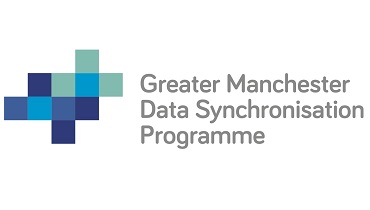 GMDSPGMDSP
GMDSPGMDSPManchester, United Kingdom
The Greater Manchester Data Synchronisation Programme was created to enable local government and public bodies in Northwest England to identify, model, transform and release data as linked open data, for use by local government itself and the wider community of citizens and businesses.
-
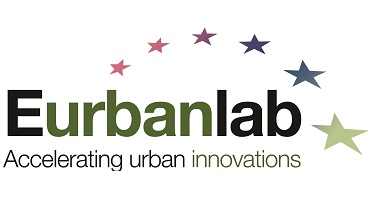 EurbanlabEurbanlab
EurbanlabEurbanlabRotterdam, The Netherlands
Eurbanlab, as an European initiative, accelerates systemic innovations to create smart, sustainable cities through providing research based advice that helps improve plans and projects. In doing so, Eurbanlab provides confidence and trust to investors and governments.
-
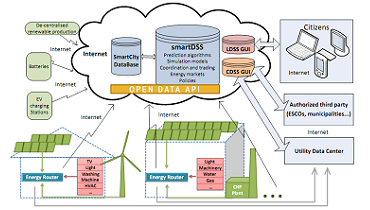 iURBANiURBAN
iURBANiURBANRijeka, Croatia
The iURBAN tool will address increasing market demands for cheaper, cleaner energy services. It is being designed with the direct involvement of end users – local residents, energy companies and public administration.
-
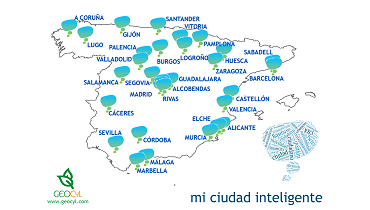 Mi Ciudad InteligenteMi Ciudad Inteligente
Mi Ciudad InteligenteMi Ciudad InteligenteValladolid, Spain
Analysis and dissemination of smart cities project, in which two geographers -GEOCyL partners-, rode for eight weeks 30 cities belonging to the Spanish Network for Smart Cities – RECI – using an electric vehicle for their mobility.
30 days to analyze 30 Spanish cities using as intelligent thread of the project, the experience aboard an electric vehicle in urban areas. -
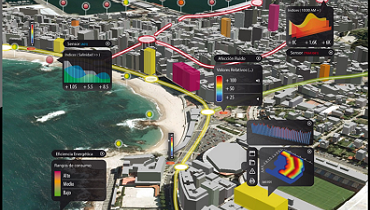 Coruña Smart CityCoruña Smart City
Coruña Smart CityCoruña Smart CityCoruña, Spain
“Coruña Smart City” project has been conceived with the objective of improving the quality of life of residents as well as the financial and business environment through technological innovation, positioning Coruña as a management reference for cities of the future.
-
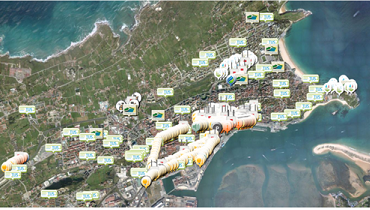 SmartSantanderSmartSantander
SmartSantanderSmartSantanderSantander, Spain
The SmartSantander project aims at the creation of an experimental test facility for the research and experimentation of architectures, key enabling technologies, services and applications for the Internet of Things in the context of a city. The envisioned facility is conceived as an essential instrument to achieve the European leadership on key enabling technologies for IoT, and to provide the European research community with a one-and-only platform of its characteristics, suitable for large scale experimentation and evaluation of IoT concepts under real-life conditions.
-
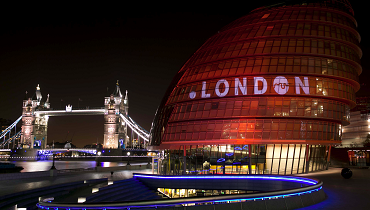 Smart London PlanSmart London Plan
Smart London PlanSmart London PlanLondon, United Kingdom
The Plan focuses on what City Hall will be doing between now and the end of the Mayoral term – to which all of London are asked to contribute to and support.
The Smart London venn diagram depicts the starting approach that puts Londoners at the heart – driven by the principles of transparency, collaboration and innovation. Adopting new approaches, through bringing people, technology and data together, will enable more integrated solutions to addressing London challenges. -
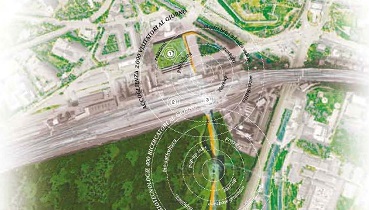 Verona Open KnowledgeVerona Open Knowledge
Verona Open KnowledgeVerona Open KnowledgeVerona, Spain
City planning deals with the concept of “smart”, the ability of a city to develop at the highest level the potentialities of its citizens and of its resources towards a collective wellbeing. The aim of Verona smart city is to encourage planning and social collaboration towards this direction.
-
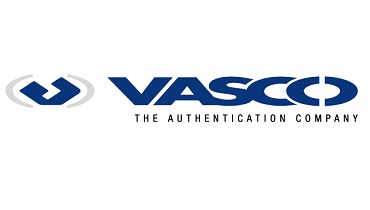 Make it MobileMake it Mobile
Make it MobileMake it MobileVasco
DIGIPASS is VASCO’s renowned technology that replaces weak static passwords with dynamic passwords that have a limited validity. Fraudsters can thus not reuse an end user’s password at a later time.
-
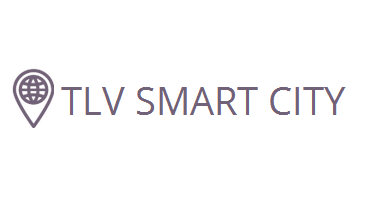 TLV Smart CityTLV Smart City
TLV Smart CityTLV Smart CityTel Aviv, Israël
The Tel Aviv Smart City Lab, a global centre of excellence in urban innovation. A place where cities, businesses and universities come together to develop solutions to the future needs of our cities.
-
 Smart Grid pilot projectSmart Grid pilot project
Smart Grid pilot projectSmart Grid pilot projectMalaga, Spain
Endesa’s Smartcity Málaga Project is Europe’s largest eco-efficient city initiative. It aims to increase energy efficiency, reduce CO2 emissions and boost the use of renewable energy sources.
The zone has around 11MW of renewable generation capacity, which includes numerous roof-mounted photovoltaic installations spread throughout the city, a cogeneration facility, vertical-axis wind turbines and generation systems integrated in street lighting. -
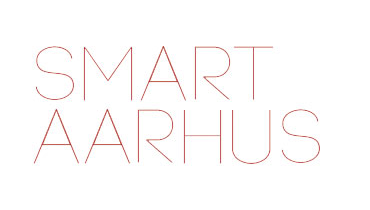 Smart AarhusSmart Aarhus
Smart AarhusSmart AarhusAarhus, Denmark
The projects within Smart Aarhus all aim at developing the city and creating a framework for sustainable growth. And the projects are based on the Smart Aarhus principles. A wide range of public and private organizations and citizens have been (and are still) involved in specific projects.
-
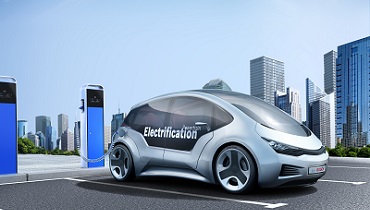 Monaco and BoschMonaco and Bosch
Monaco and BoschMonaco and BoschMonaco and Bosch – city of tomorrow
The project will initially focus on mobility. City infrastructure and public services – such as bus networks, parking lot management, paper and waste collection, and information on roadwork – will be connected virtually, providing local residents with real-time information. This will make it possible for citizens and visitors to the principality to interact with local government directly and without red tape.
-
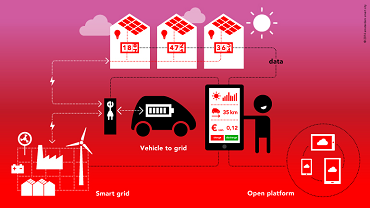 Vehicle2GridVehicle2Grid
Vehicle2GridVehicle2GridAmsterdam, the Netherlands
In Amsterdam and Lochem a Vehicle2Grid a Vehicle2Grid pilot program will get started. Residents will be able to use the battery in their electric car to store their locally produced energy. Residents will be able to decide how to put their locally produced energy (i.e. from solar panels) to use.
-
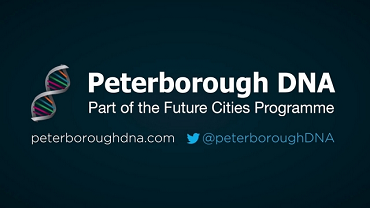 Peterborough, UKPeterborough, UK
Peterborough, UKPeterborough, UKPeterborough DNA
Peterborough in the East of England is the UK’s fastest growing city with infrastructure, issues and scale that are common across the UK. The city and its Peterborough DNA programme were awarded £3 million in March 2013 to develop and test innovative ideas and new technologies for how smart, future-proofed cities could work.
-
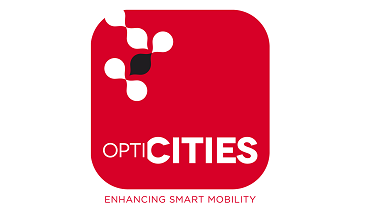 Grand LyonGrand Lyon
Grand LyonGrand LyonOPTICITIES
The consortium includes 6 city authorities (Grand Lyon, Birmingham, Goteborg, Madrid, Turino, Wroclaw), major ITS actors: research institutes, information service providers, car industry (HaCon, Spie, CityWay,Volvo) and the most important networks of European cities and international public transport operators (EUROCITIES, UITP).

